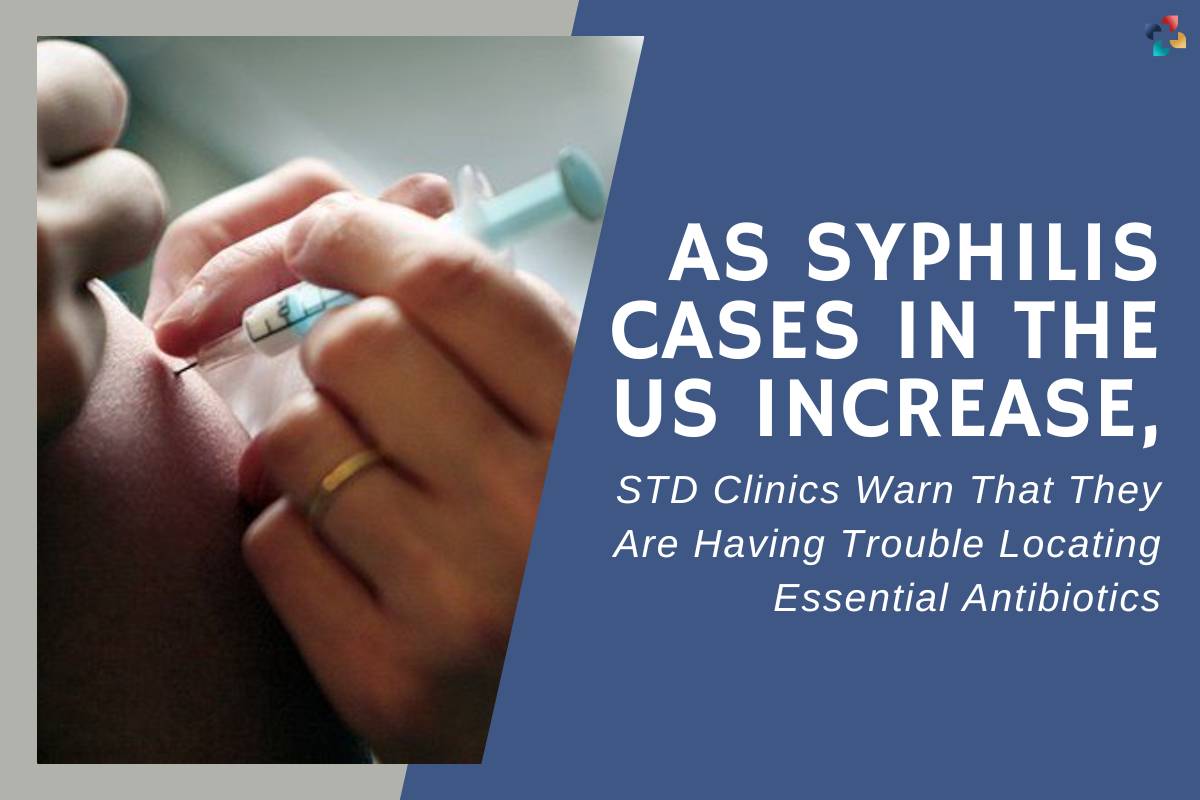Infections are on the rise, and the preferred antibiotic treatment for syphilis cases is in short supply across the country. More than three dozen influential public health organisations are pleading with the White House to take action.
In a letter to the White House Drug Shortage Task Force on Monday, the National Coalition of STD Directors and 38 other public health organisations described how clinics are having trouble placing orders for the standard syphilis drug Bicillin, an injectable form of the antibiotic penicillin, and that those who have been successful in doing so are receiving orders that are only partially filled or delayed.
The letter requests that the White House task team prioritise the Bicillin shortage and cooperate with pharmaceutical company Pfizer to secure adequate supply. The letter states that “Bicillin L-A remains the preferred treatment for primary and secondary syphilis cases in adults, children, and infants, and the only approved treatment for syphilis cases in pregnant women.”
The letter, signed by organisations involved in public health, HIV, and maternal health, states that Pfizer’s inability to provide adequate quantities of Bicillin L-A has forced the Food and Drug Administration, the Centres for Disease Control and Prevention, and many local and state health departments to scramble to ration the drug’s current supply and develop backup plans.
“Affected communities and significant stakeholders need to be aware of the precise causes of the current shortage, as well as Pfizer’s strategies for promptly resolving it and avoiding a recurrence. Prioritising investments in attempts to avert shortages is necessary, and we hope the company is already moving forward to address the Bicillin L-A shortage earlier than anticipated. However, in order to assure accountability, we need the Drug Shortage Task Force’s assistance.
Houston-area syphilis cases: Health department reports 128% increase in cases among women
The White House or the task force have not responded, the National Coalition of STD Directors verified to CNN on Tuesday. The Biden-Harris administration “remains focused on strengthening the resilience of critical supply chains, including for medical products like pharmaceuticals,” a White House official said in a statement. Five executive orders have been issued by President Biden to spur overall government activity towards these goals. In order to guarantee that Americans can receive the medication they need when they need it, President Biden’s Administration started working on strengthening pharmaceutical supply chains on Day 1.
In an email, Pfizer stated that it is in continual contact with the CDC and FDA regarding its supply of Bicillin and that it has boosted production by roughly 30% this year with the aim of doubling output by the end of the following year. According to the business, it would take some time for that ramp-up to be noticed in the market.
Earlier this week, a letter was delivered to the White House outlining how a Bicillin shortage in 2017 “coincided with a significant increase in congenital syphilis cases that has dramatically worsened ever since.”
Syphilis cases are increasing in the United States. According to data from the CDC, recorded instances of syphilis cases grew by almost 74% between 2017 and 2021, and congenital syphilis, which occurs when a mother infects her unborn child while she is pregnant, increased by more than 203%. Congenital syphilis cases reached a more than 27-year high in 2021 and were reported in almost every state.
In a news release on Monday, David C. Harvey, executive director of the National Coalition of STD Directors, said that it was “devastating to see the dramatic rise in completely preventable congenital syphilis cases while clinics can’t get their hands on the basic antibiotic they need to save lives and prevent profound consequences for newborn babies.” “The government must launch a response to the syphilis epidemic that ensures clinics can obtain the Bicillin L-A they require immediately and prevents recurrent shortages like this one from ever occurring again.”
In June, Pfizer stated that there were insufficient supplies of Bicillin and predicted that a solution might not come until 2024.
The FDA published a letter the company sent to clinicians that month in which it claimed that the “supply interruption” affecting Bicillin was caused by a complex web of factors, including significant increases in demand brought on by rising rates of syphilis infection as well as price competition. Pfizer has given production capacity first priority in order to fulfil this rising demand.
Many state health departments, including those in California, Louisiana, Minnesota, Pennsylvania, Texas, and Virginia, issued health advisories regarding the shortage and suggestions for alternate syphilis treatment options in the months following that statement.











